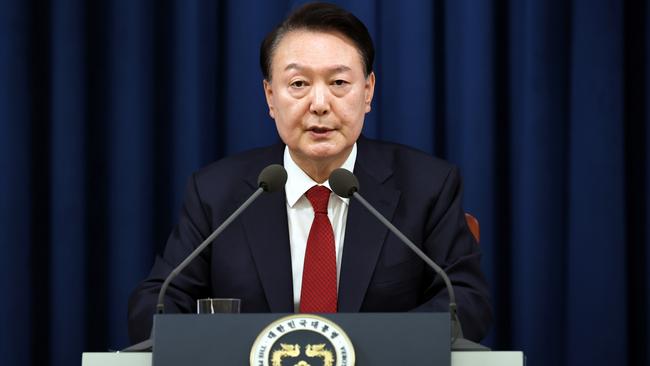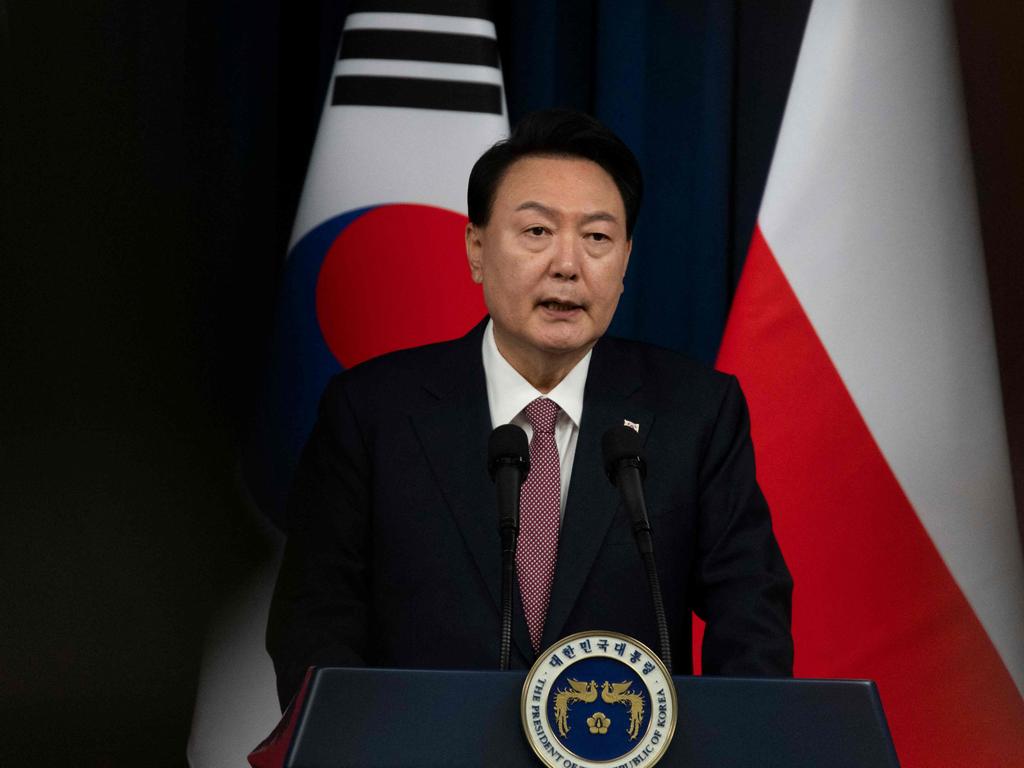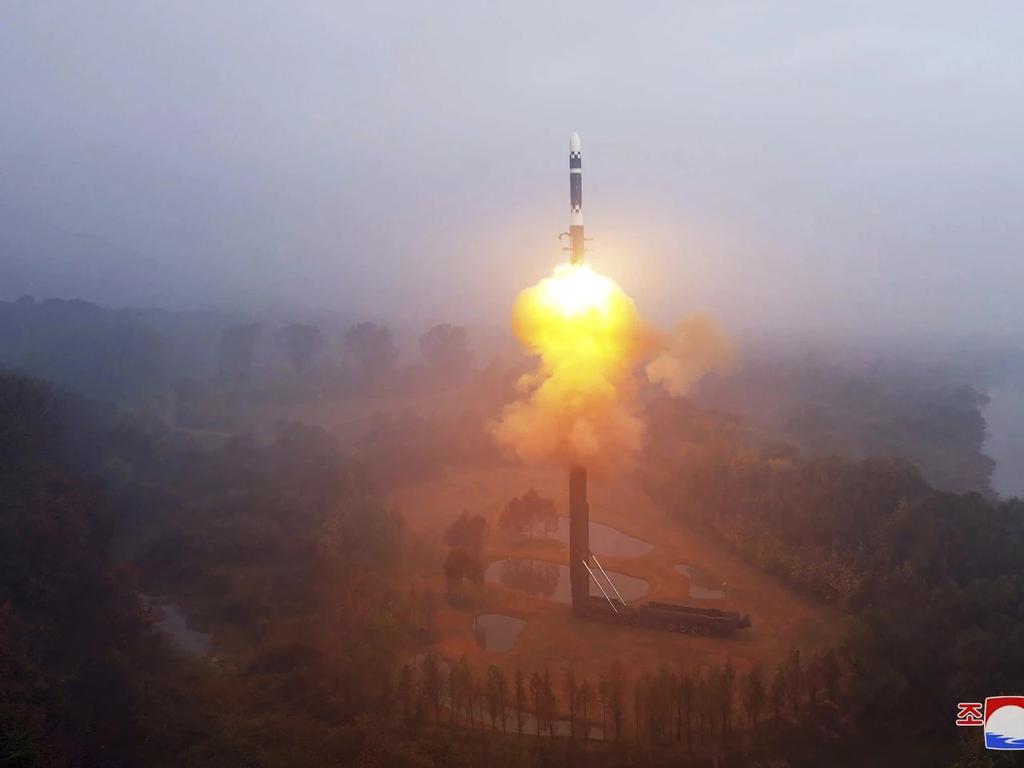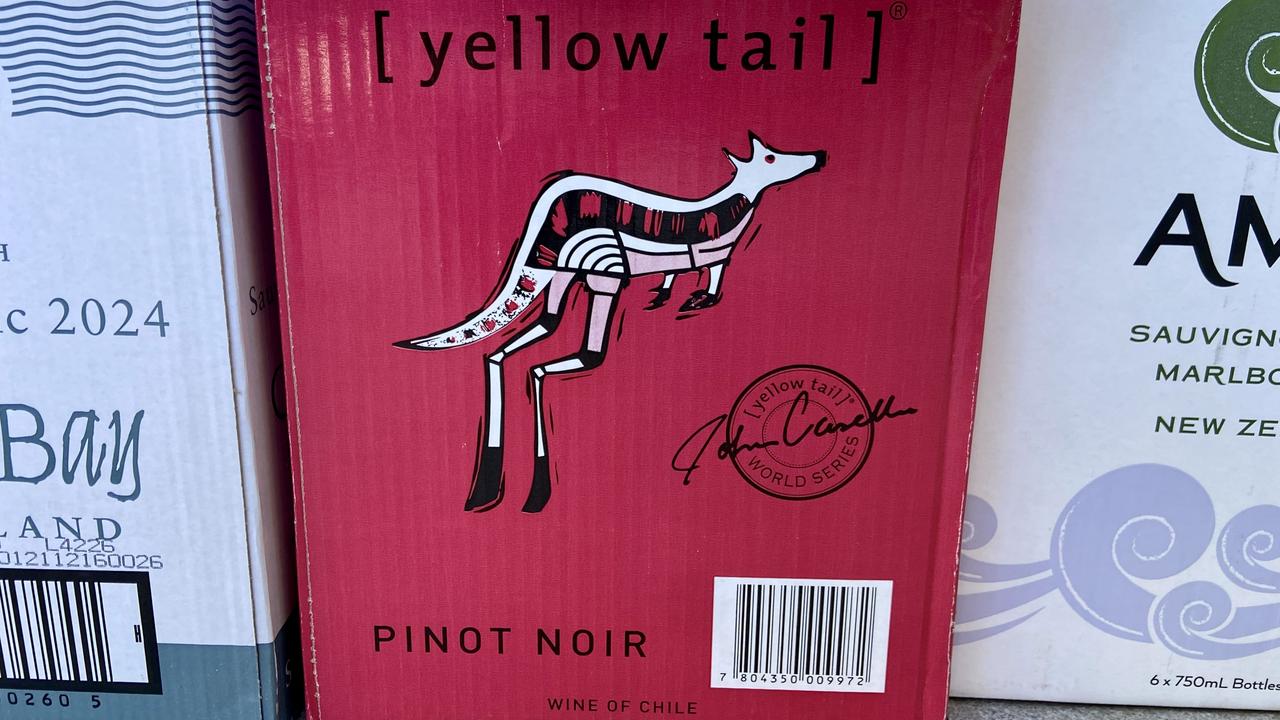Conservative leader perfecting his golf swing for Trump
In his presidential victory speech, Yoon Suk Yeol said he would honour the constitution and parliament and foster unity – there was little sign of that unity as he declared martial law.

It took only two years for South Korea’s conservative President Yoon Suk Yeol to learn the limits of his power.
After winning the presidency in 2022 with a vow to strengthen the alliance with the US and deal “sternly” with North Korea – bringing to an end five years of engagement with Pyongyang – by the spring of this year he was facing the prospect of years of domestic strife.
In April, his opponents won a landslide in parliamentary elections, jeopardising his power to pass laws and raising questions about the long-term direction of policy towards Kim Jong-un’s regime. The opposition Democratic Party and its minority partners came away without enough seats to overrule presidential vetoes and change the constitution, but are still in a position to obstruct and delay the government’s bills and budgets.
Yoon’s Prime Minister, Han Duck-soo, and senior aides offered their resignations. Yet Yoon, 63, still had three years of his five-year term left, and his own position was not directly threatened by the defeat. He still controlled foreign policy and was determined to maintain his confrontational attitude towards North Korea and to embrace the US.
To that end, he was said last month to have taken up golf again, after a break of eight years, to impress Donald Trump. Yoon’s office said he recently began practising “in preparation for ‘golf diplomacy’ with president-elect Trump … following the advice of those around him”.
Before his first term, Trump said South Korea and Japan should pay more for the US troops stationed on their soil, the backbone of defence strategy in both countries. He never followed through, but there were lingering fears he would revive the idea and resume dialogue over denuclearisation with “Little Rocket Man” Kim.
Some South Koreans feared that Trump might strike a deal to eliminate the long-range missiles that threaten Washington, while accepting the short-range weapons that could destroy Seoul.
Historically, liberals such as Yoon’s predecessor, Moon Jae-in, had sought to engage with Pyongyang. The future of the North Korea policy, however, had been in doubt since Yoon took power. Domestically, Yoon had faced criticism for failing to control inflation. A strike by trainee doctors, in which 90 per cent of them walked off their wards, weakened his hand.
Yoon’s approval rating fell sharply, propelled by a string of personal embarrassments. During campaigning for parliamentary elections in March, he became the object of mockery when he revealed his ignorance, during a visit to a market, of the soaring price of green onions. His wife, Kim Keon-hee, meanwhile, had receded from view after she was accused of improperly accepting an expensive Dior handbag.
Yoon was also accused of divisiveness in his efforts to profit politically from the gender wars that had divided South Korean society, appealing to an anti-feminist movement among young men who believed they were unfairly stigmatised. He promised to abolish the ministry for gender equality, denying that South Korean women faced systemic discrimination despite plentiful evidence of inequality of opportunity, representation and income.
The son of academics, Yoon studied law at the elite Seoul National University. He had no political experience until the year before he became president, having spent his career as a prosecutor, but he had come to the public’s attention when he investigated Park Geun-hye, who was forced from the presidency in 2017, and subsequently imprisoned for corruption.
Park was succeeded by Moon, who appointed Yoon as prosecutor-general. The two men fell out after Yoon’s zealous investigation of Cho Kuk, Moon’s justice minister, who was accused of illicit business deals and lying to get his daughter into a leading university.
Yoon then resigned as prosecutor, and unexpectedly declared himself a presidential candidate three months later, and was adopted by the opposition People’s Power Party as its candidate. He positioned himself as an outsider who was not susceptible to the corruption of the political elite. Yoon’s opponents, however, insisted that his lack of political experience was a dangerous liability for a country on a constant war footing with North Korea.
Yoon is broadly a supporter of business and an opponent of state interference. In the tradition of South Korean conservatives, he believes in a strong relationship with the US.
Yoon has frequently attracted ridicule for his stiff, prosecutorial manner. He has had to play down reports that he takes advice from shamans, after an incident during a debate for the presidential nomination.
Two years ago, in his presidential victory speech, Yoon said he would honour the constitution and parliament and would work with opposition parties to heal polarised politics and foster unity. On Tuesday night after the South Korean military’s short-lived announcement that all activities in parliament and political parties were banned, there was little sign of such unity.
The Times





